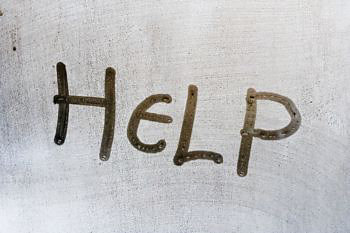3 Ways High Humidity Can Destroy Your Home

June 18, 2015
High humidity in your home is uncomfortable.
But did you know it’s also bad for you and your home?
Let us explain...
Ideally, humidity levels in your home should hover around 45%. But in Florida, many homes have much more than that. And anything over 50% is too high.
And high humidity can lead to some pretty nasty issues including:
- Mold and mildew growth
- Insect infestations
- Annoying home repairs
Lets look at each in a little more detail.
Mold and mildew growth
When your home’s humidity level reaches above 50% it’s being pushed into the mold-growing range of relative humidity.
You see, molds reproduce by means of tiny spores; the spores are invisible to the naked eye and float through outdoor and indoor air. Molds can start growing in your home when spores land on surfaces that are warm and moist.
Not only can mold and mildew cause damage to whatever it’s growing on, they can also pollute your home’s air and increase the occurrence of colds, allergies, and other illnesses.
How?
According to the Environmental Protection Agency, molds produce allergens, irritants, and in some cases, potentially toxic substances.
Insect infestation
Though some insect infestations are related to the presence of mold and mildew (because that's what they eat), others are related to the presence of high humidity alone.
Insects (such as mites, cockroaches, and beetles) simply find environments with high humidity to be warm and cozy. Also, these insects do not drink water; instead, they absorb moisture from the air.
Mite populations, in particular, thrive in environments with 80% relative humidity but are minimized when the relative humidity is below 50%.
In most cases, insect infestations are clues to water leaks or some other moisture problem within your home.
Annoying home repairs
When indoor humidity levels are too high, the build-up of excess moisture in your walls and ceilings can cause costly structural damage to your home due to rotting, warping and corrosion.
Other repair issues associated with high humidity include:
- Peeling wall paint
- Crumbling drywall
- Wet insulation
- Leaking roofs
Dehumidifying options
So now that you know why high humidity in your home is bad, here are 3 simple ways to deal with it.
If you’re still experiencing high humidity inside your home, you may have a more serious problem involving your AC that requires the assistance of an HVAC professional.
A professional will be able to test for excessive humidity levels and may recommend installing a whole-home dehumidifier.
If you have any questions feel free to ask one of our experts or, if you live in the Sarasota Area, contact CoolToday for maintenance, install or repair.
Posted in: Tips